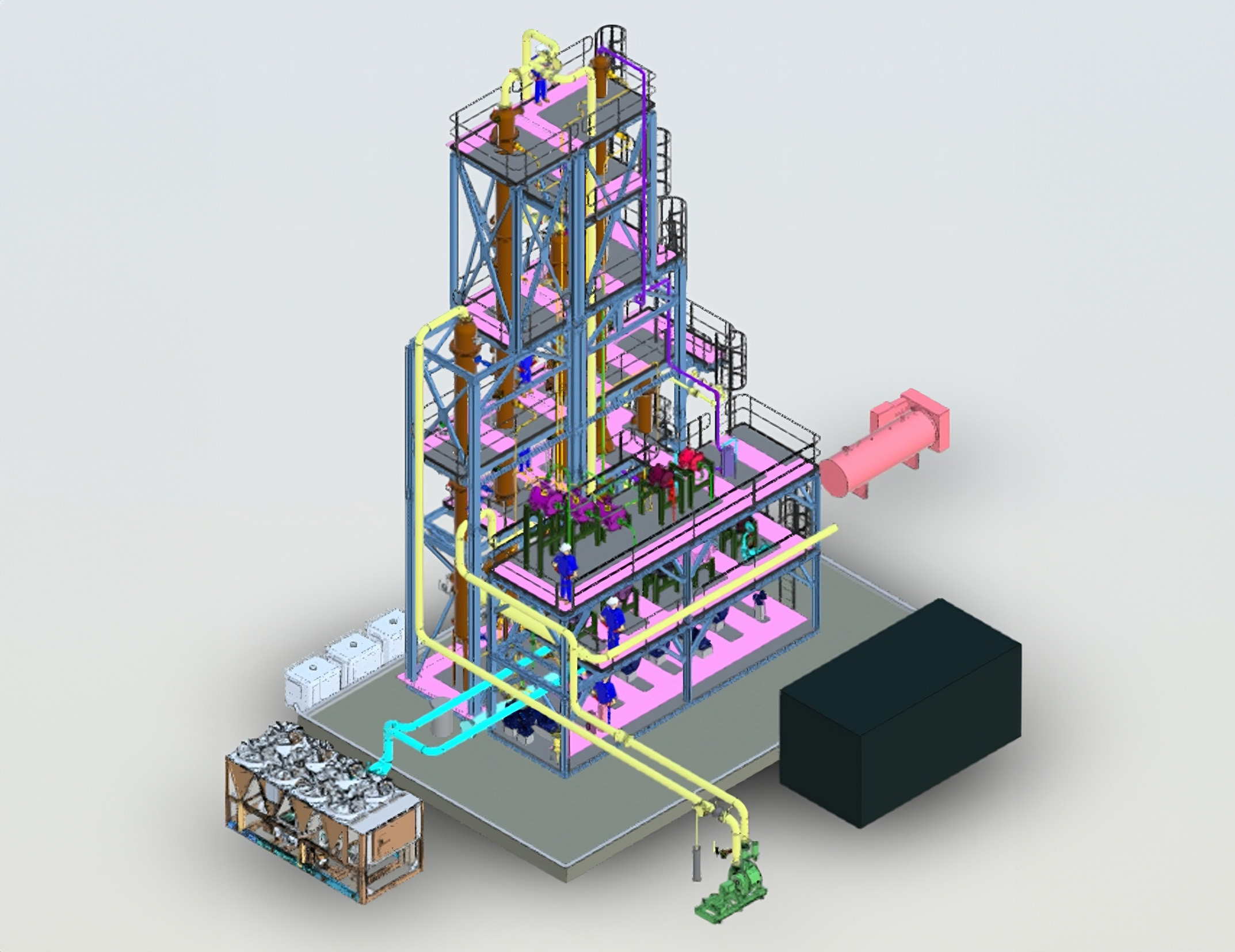Optimal Group has completed detailed design of the KC8 Capture Technologies PACER Project in preparation for fabrication of this important pilot module.
KC8 Capture Technologies is actively engaged in the commercialisation of cutting-edge carbon capture technology, offering a cost-effective pathway to mitigate greenhouse gas emissions originating from the consumption of fossil fuels and heavy industries on a global scale.
KC8 have engaged Optimal Group to provide the first demonstration unit of this cutting-edge technology. The demonstration plant will be assembled at a Melbourne site and subsequently be transported to a cement kiln in Gladstone, Queensland for ongoing commercial demonstration.
The facility's design will closely adhere to KC8's proprietary UNO carbon capture technology, underpinned by patented processes employing potassium carbonate solvents. The UNO processes, notably the UNO MK 3 process, incorporate an innovative precipitating method, which is the cornerstone of KC8 Capture Technologies' offering. These processes yield substantial reductions in both capital and operational expenditures, positioning them as the preeminent carbon capture solution. Moreover, this system exhibits the capability to capture as much as 95% of carbon dioxide emissions emanating from heavy industrial sources, such as cement plants.
 Completed detailed design of the KC8 PACER Project.
Completed detailed design of the KC8 PACER Project.
Diverging from traditional large-scale commercial CO2 capture processes reliant on amine-based solvents, which are characterized by elevated costs, high energy consumption, and issues related to solvent degradation, KC8 has introduced an innovative solvent that is not only safe and environmentally friendly but also notably 40% more cost-effective.
The Potassium Carbonate Absorption for Clinker Emissions Reduction (PACER) project stands as a testament to the efficacy of the UNO MK 3 solvent process and its instrumental role in promoting this groundbreaking low-emission technology.
Optimal Group has been engaged by KC8 for the detailed design, procurement and fabrication of the process module. This includes the execution of detailed engineering process design, formulation of technical and commercial specifications for major supply and construction contracts, as well as supervision of construction contractors and coordination of the plant's commissioning.
A recent report, commissioned on behalf of the Australian Cement and Concrete industries by VDZ, advocates the integration of carbon capture technology into the national carbon capture plan for cement production. The PACER project aligns seamlessly with this recommendation, leveraging groundbreaking technology to capture carbon emissions from an operational cement facility in Australia. In the event of a successful outcome, the captured carbon will constitute a fundamental component in the production of value-added products, such as green methanol.
